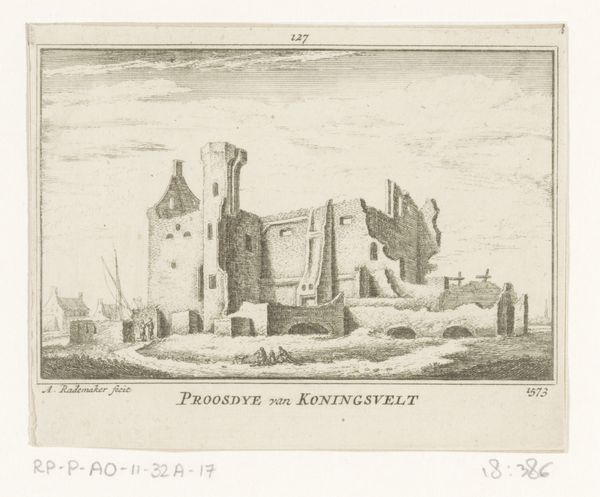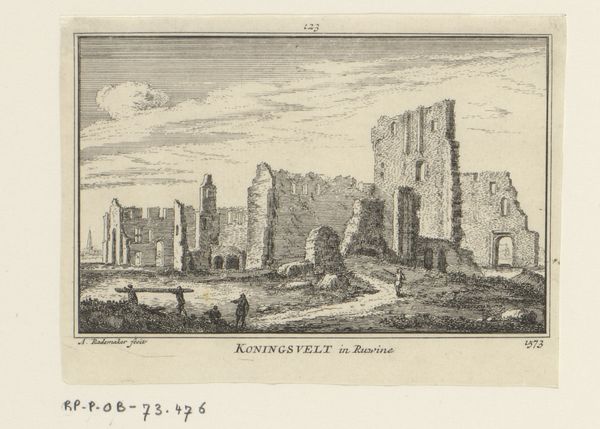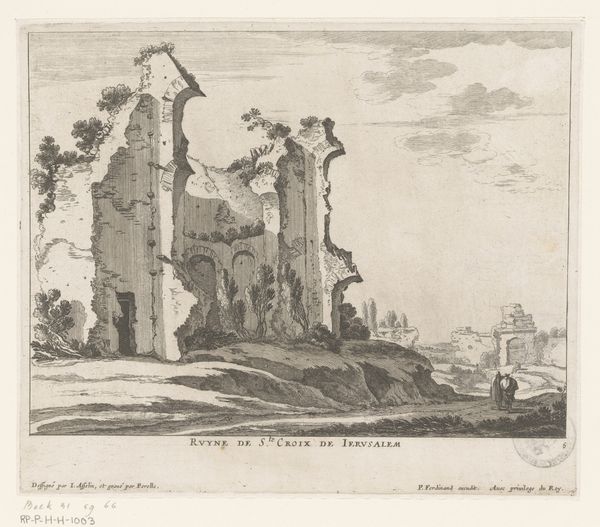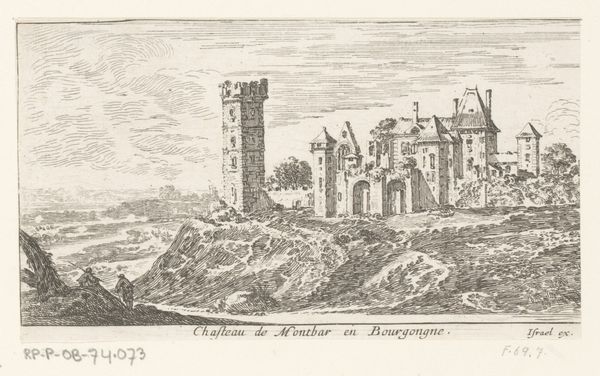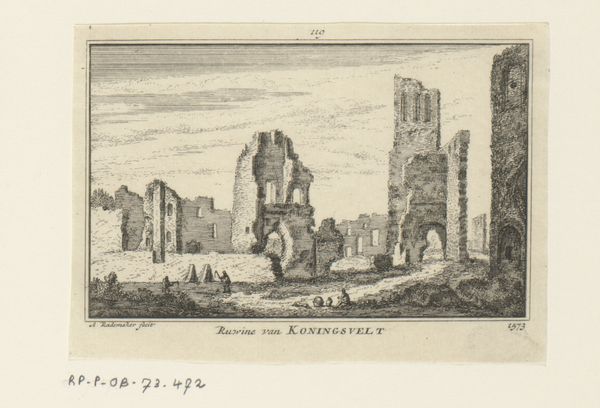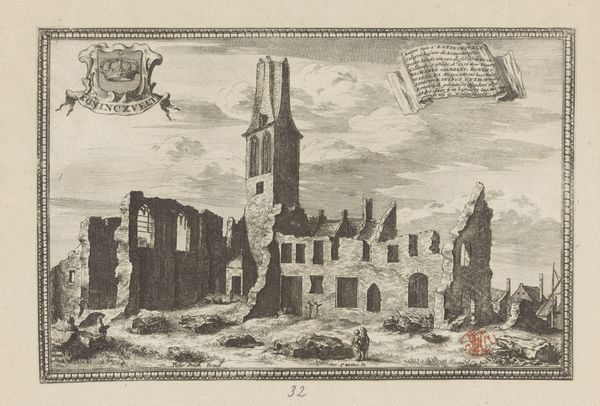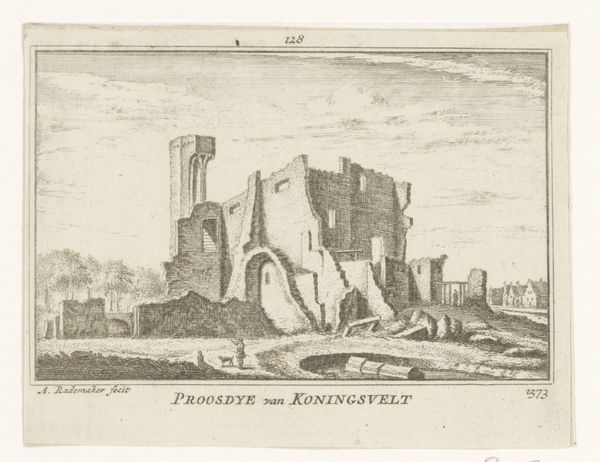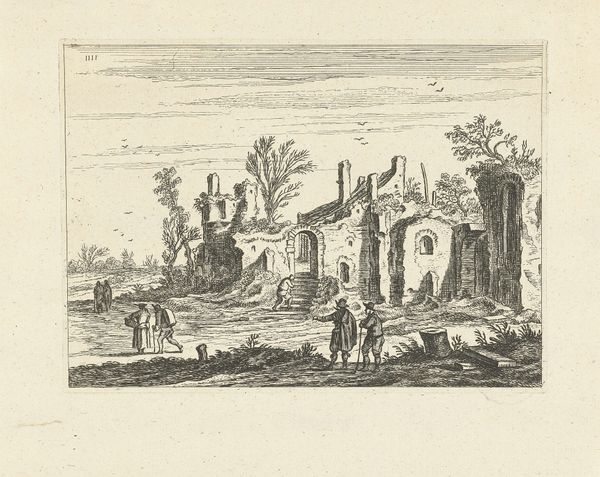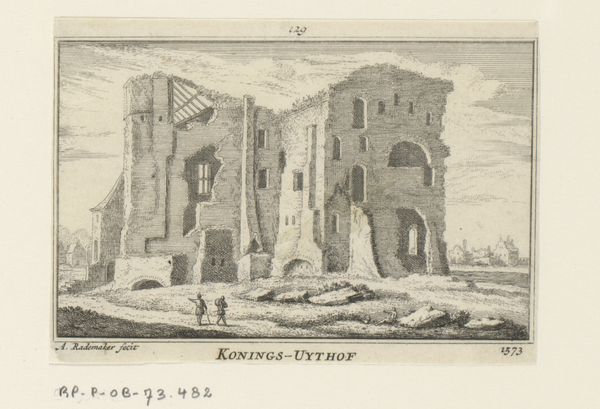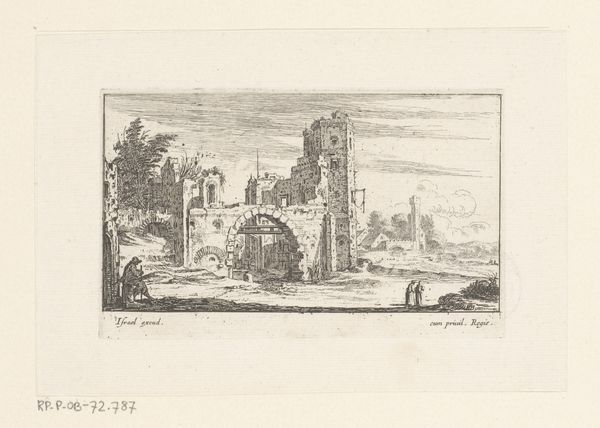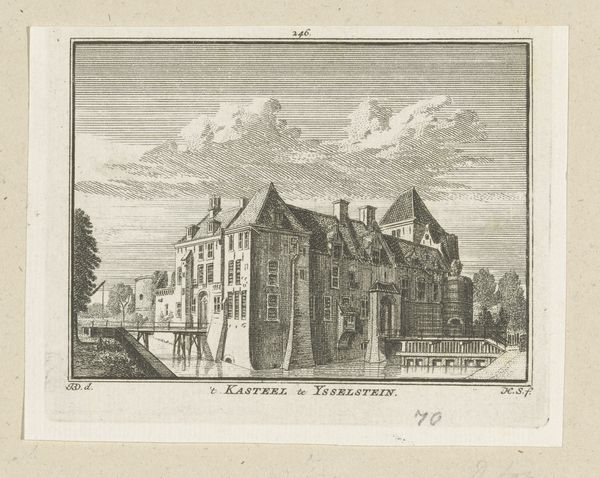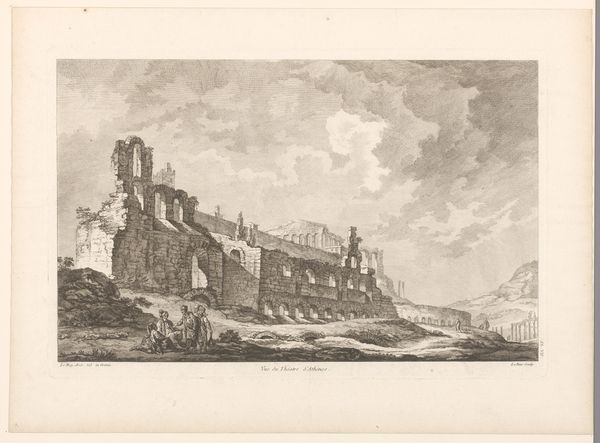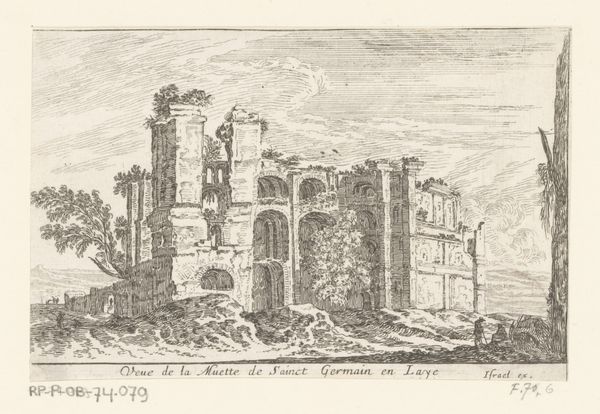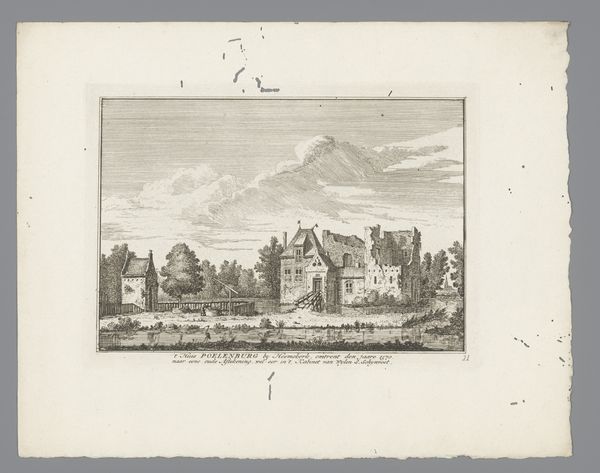
Gezicht op de geruïneerde proosdij van het klooster Koningsveld, 1573 1727 - 1733
0:00
0:00
abrahamrademaker
Rijksmuseum
drawing, print, engraving
#
drawing
#
baroque
# print
#
old engraving style
#
landscape
#
cityscape
#
engraving
Dimensions: height 80 mm, width 115 mm
Copyright: Rijks Museum: Open Domain
Editor: So, this is "Gezicht op de geruïneerde proosdij van het klooster Koningsveld, 1573" by Abraham Rademaker, done between 1727 and 1733. It's an engraving... It feels very… melancholic, I suppose. All that ruin. What do you make of it? Curator: This engraving invites us to consider the means of its own production, doesn't it? Look at the labor involved in creating such a detailed image through the engraving process. The tools, the physical exertion...it’s all a testament to human effort. Editor: That's true, the detail is impressive, considering it’s an engraving. I was focused on the ruin itself. Curator: And that ruin! It speaks volumes about the impermanence of structures, the ebb and flow of power, and the ultimate triumph of nature over human artifice. This wasn’t just any building; it was a site of religious and political power, now rendered to rubble. The very materiality of the stone is in transition. Do you see how Rademaker uses the medium to highlight that process of decay? Editor: I see it now, it’s like the print itself captures the degradation. Like it mirrors it. Curator: Precisely. Also, the availability and distribution of this print… it puts this image of fallen authority into the hands of a wider audience. Consider its role in shaping public perception of religious institutions and societal shifts during its time. Editor: It’s incredible how much the material choices inform the content and context. I would not have made the connections that you brought up. Curator: Paying attention to the means of production—labor, tools, dissemination—opens up a whole new layer of meaning. It shows that art is not separate from human life but is shaped by historical forces, isn't it?
Comments
No comments
Be the first to comment and join the conversation on the ultimate creative platform.
